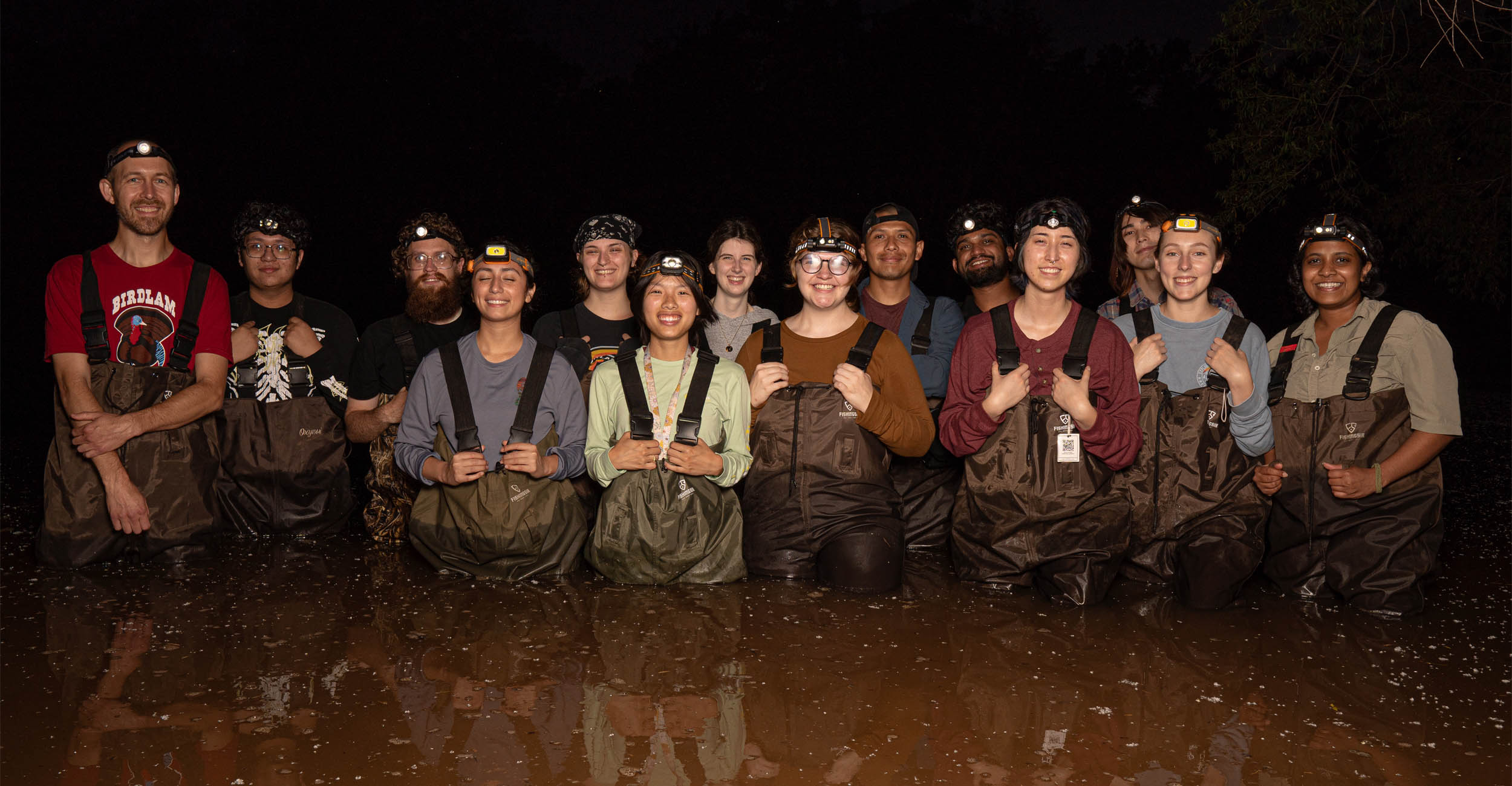
OSU biology professor partners with education studio to develop free lessons for high schools nationwide
Monday, March 3, 2025
Media Contact: Jordan Bishop | Editor | 405-744-7193 | jordan.bishop@okstate.edu
The calls of gray treefrogs are making their way from Oklahoma wetlands to high school biology classrooms nationwide, thanks to Oklahoma State University professor Dr. Michael Reichert.
Reichert, who studies animal communication at OSU’s Department of Integrative Biology, has partnered with education studio Galactic Polymath to develop a free mini-unit, including two lessons supported by original videos. These resources are made open-access to the public through a National Science Foundation CAREER grant for his research on frog acoustics.
“This is the first real public outreach that I’ve done,” Reichert said. “I’m really excited that it’s being done so well. The videos they made are fantastic, and it showcases our work and the students so well.”
The unit, titled “Balancing Act,” aims to teach students about biological trade-offs. The student activities use Reichert’s research on frog mating calls as a real-world example.
“Trade-offs are a pretty central concept in biology,” Reichert said. “It basically means that if you have more of something, you have less of something else. For example, in the frogs that we study, females like calls that are long, but they also like calls that are given at a high rate. The males have a trade-off. They can’t really do both at the same time.”
Matt Wilkins, CEO of Galactic Polymath and a biological researcher himself, said collaborations like the one with Reichert are crucial for bridging K-12 and higher education.
“We’re trying to get kids invested in trade-offs broadly and understanding his research,” Wilkins said. “Science is not just a static bunch of facts. It’s an ongoing investigation of our universe.”
The videos supporting the lessons include Reichert and two of his students, Phoebe Will and Kayleen Sugianto. These three give students a glimpse of real scientific teamwork. In the lessons, students also work with research data, analyze graphs and interpret frog calls.
“This opportunity to connect with real research that’s happening now is really inspiring for students,” Reichert said. “A lot of times in high school, it’s all things that happened a long time ago, and it’s hard to feel connected to it.”
As part of this project, Galactic Polymath is also helping to develop a free web-based sound analysis tool called Sound Lab. This tool will allow students to play with acoustic recordings without any specialized software, a resource that hasn’t been available in the past.
The lessons also align with Next Generation Science Standards and other subject standards, which makes it easy for teachers to incorporate the free lessons into their curriculums. Wilkins said he hopes they spark curiosity about natural sounds and biodiversity.
“I hope that it gets students curious about natural sounds and equips them with tools to pursue their own questions,” Wilkins said. “Biodiversity is everywhere. When you step outside your door, there are birds starting to sing as the beginning of spring approaches, and a lot of people don’t really notice or pay attention to it.”
The current lessons are just the beginning of Reichert’s five-year grant. He plans to expand the materials as his research progresses, wanting to incorporate new data on how metabolism affects frogs’ behavior.
Reichert and Wilkins emphasized the importance of funding for projects like this through the NSF. “Public funding of science and science education is really important,” Reichert said. “I think we’re doing a lot of good things with it.”
Educators who are interested in implementing the lessons can access them for free on Galactic Polymath’s website. Teachers who would be willing to test pilot the lessons and provide feedback can contact info@galacticpolymath.com.
Story By: Mak Vandruff | makenzie.vandruff@okstate.edu
